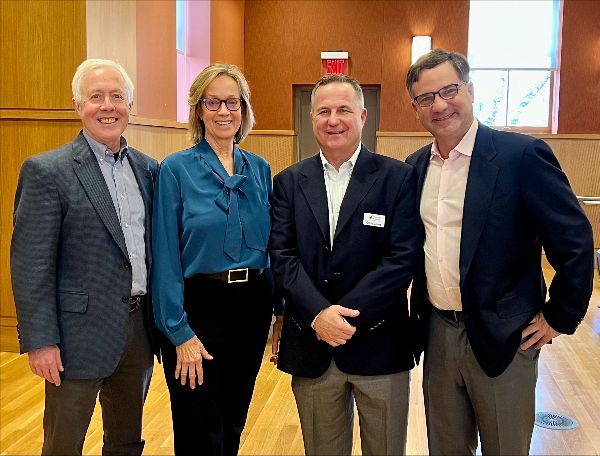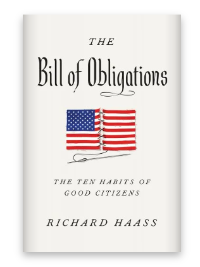Civic Responsibility and the Bill of Obligations
Earlier this month, I had the privilege of speaking on Election Law updates and Civic Sensibility at the At Home in Darien annual meeting. AHID is a well regarded community organization whose mission is “Empowering Seniors to Remain in their Homes and be Safe, Healthy and Socially Connected.”

Among my remarks, I mentioned reading a book that was an inspiration to read. Published in January of this year: The Bill of Obligations: Ten Habits of Good Citizens authored by Dr. Richard Haass, immediate past president of The Council of Foreign Relations.
Dr. Haass shares his well reasoned and emotionally felt fear about the current political climate in our country right now. Anger and loud hostility on the extreme left and right in our country are cause for great concern. And for many, it’s what “keeps us up at night.”

Following are selected highlights and suggested solutions in Mr. Haass’ excellent book.
Part One – – The Crisis of our Rights Based Democracy.
“Democracy asks a great deal of its citizens and leaders alike. From the former, it requires informed participation. From the latter it asks for good faith and restraint and a willingness to put the collective interest before politics, party or personal gain.”
Part Two – – The Bill of Obligations *** Bill of Rights ***
- Be Informed
- Get Involved
- Stay Open to Compromise
- Remain Civil
- Reject Violence
- Value Norms
- Promote the Common Good
- Respect Government Service
- Support the Teaching of Civics
- Put Country First
A few favorite quotes:
“This is where obligations come in: American democracy will work and reform will prove possible only if obligations join rights at center stage.”
“A democracy depends on the participation of its citizens. It is rule by the people rather than of the people. Yes, in a representative democracy elected and appointed officials wield a great deal of power, but the point is the power is derived from those who elect them and give them the power to act.”
In closing, Mr. Haass writes…
“The call for the notion of citizenship that places obligations on an equal footing with rights is not intended to detract from the importance of respecting and protecting rights which are central to democracy. Rights viewed as absolutes and advanced in isolation from other considerations will risk the political system in which they are rooted.”
Highly recommend this read!
Recent election stats
Of the 3.5 million people who live in Connecticut, 2,130,142 are registered to vote. Yet, there are 2,803,538 legal residents eligible to vote. The delta is 673,000 people who are eligible to vote yet are not registered. That is @ 24% of the total population of those eligible to vote.
Our biggest cities have the lowest voter turnout percentage. The municipal turnout in Bridgeport was 20% in November. Effectively less than that, when the percent of not-registered voters are added in. An especially notable stat this year when corruption riddled their/its primary election in September.
Even more startling is the statistic that despite efforts to allow DMV and online registration – while there may be increased registration – there has not been an increase in voter participation.
Busy lives certainly make sense. Balancing work / multiple jobs, raising families, caring for parents, community responsibilities are all reasonable challenges. Though if voting is so deeply important, why are so many not choosing not to prioritize learning about candidates and voting consistently?
I look forward to delving into this subject further next year.
In closing, many thanks to you all for engagement this past year. I relish the responses and always, your thoughts.
Best wishes for a happy and healthy holiday and a spirited new year!
Warmest,
Terrie
